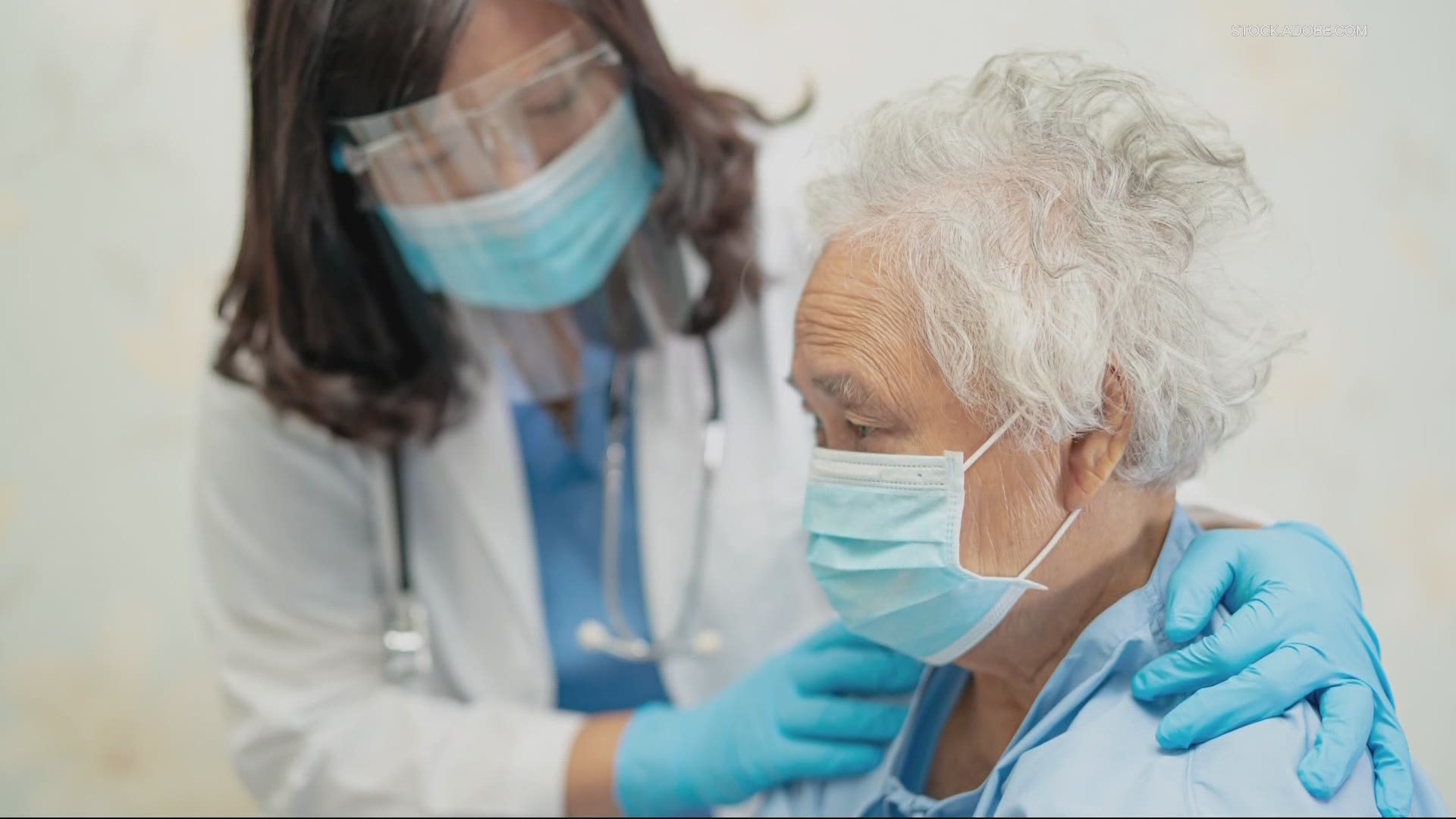WASHINGTON, D.C., USA — New cases of COVID-19 among seniors in nursing homes are down 96% since the peak in December 2020, according to the American Health Care Association (AHCA).
"This vaccine has been really a game-changer," AHCA chief medical officer Dr. David Gifford told KGW Wednesday.
AHCA helps represent more than 14,000 nursing homes and long-term care facilities nationwide. The pandemic has been devastating to those populations.
"I don't think we've seen anything like this, at least in my time as a physician over the last 30 years," Gifford said.
AHCA estimates about 600,000 health care staff and 500,000 long-term care residents got sick from COVID-19. About 130,000 residents and nearly 2,000 staff died.
"One is too many," Gifford said.
Nursing home staff and residents were some of the first to get access to COVID-19 vaccines. Now that distribution is more widespread, AHCA released a report this week noting a 96% drop in cases and a 91% drop in deaths since December.
"We're not seeing it come back in the nursing homes, because they've had such high vaccination rates," Gifford explained.
AHCA estimates show between 80-85% of senior residents accept the COVID vaccine. The staff is more hesitant, with about 55% accepting the shot.
AHCA and other national data indicate this is because:
- Some staff are younger and at lower risk.
- Some are low-paid workers who don't trust their employers.
- Some fall within communities of color or other groups who have historic distrust in health and government systems, and are therefore more vaccine-hesitant.
However, the gap has shrunk from about 60% of staff refusing the vaccine a month ago to about 45% now.
"What we're seeing is now that they've seen it's relatively safe, many more are starting to take it," Gifford said.
AHCA is now pushing Congress to take proactive measures to protect seniors in the event of another pandemic, advocating for the Care For Our Seniors Act.
Gifford argued nursing homes and long-term care facilities were not prioritized in the beginning, and that many lives could have been saved.
"If we want to prevent health problems for the elderly and those in long-term care, then we have to make them a priority," he said.
The Care For Our Seniors Act would potentially require broader oversight of the long-term living sector, with infection prevention specialists hired into facilities. Precautions would be taken now to stockpile Personal Protective Equipment (PPE). The policy would also boost transparency about facilities with repeat outbreaks, vaccination rates, and resident/family members' satisfaction in a facility's care.
However, in the short term for the rest of the country, Gifford emphasized mass vaccination.
"I studied this vaccine a long time, and it's safe and effective," he said. "We only beat the virus if we work together. If we don't work together and we have isolated pockets, then the virus wins."

